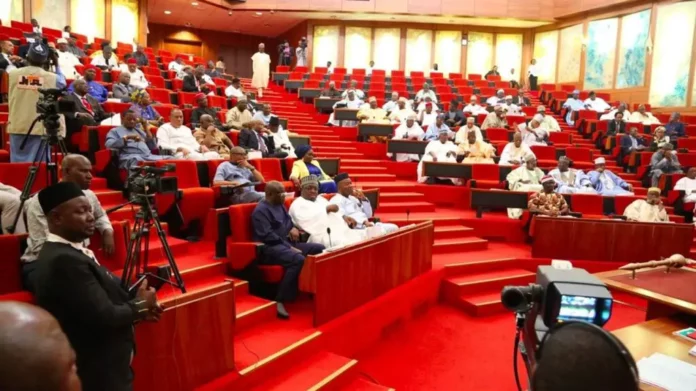By SAM OTUONYE and VIVIAN MICHAEL
The Federal Government is escalating its external borrowing plans, seeking the National Assembly’s approval for new loans totaling $21.5 million, €65 million, and ¥15 billion. This development comes even as the government announced the recovery of significant looted funds.
Speaking at an Asset Recovery Summit in Abuja on Tuesday, the Attorney-General of the Federation and Minister of Justice, Prince Lateef Fagbemi (SAN), revealed that over $763.7 million and N248 billion in stolen assets were recovered between 2017 and 2024.
He stated that in 2024 alone, the Economic and Financial Crimes Commission (EFCC) recovered over N248 billion, $105 million, and 753 duplexes. The Independent Corrupt Practices and Other Related Offences Commission (ICPC) also reclaimed N29.7 billion and $966,900.
Fagbemi emphasised that a portion of these recovered funds has been strategically invested in critical infrastructure projects, including the Lagos-Ibadan Expressway, the Second Niger Bridge, and the Abuja-Kano Road, alongside conditional cash transfer initiatives. He noted that civil society organizations like ANEEJ and CLEEN Foundation are monitoring the deployment of these assets, with their reports publicly accessible.
To enhance transparency in asset management, the Minister announced the launch of the National Central Database of Forfeited Assets and the 2024 Regulations on Proceeds of Crime (Standardized Automated Asset Forfeiture Management System). These new rules mandate monthly updates to the database by all relevant agencies.
Despite the successes, Fagbemi acknowledged the challenges of cross-border asset recovery and the need for stronger international cooperation, urging stakeholders to adopt innovative strategies for justice and national development. He stressed that recovered assets should be reinvested in vital sectors like education, healthcare, and infrastructure.
Concurrently, President Bola Ahmed Tinubu has sought the National Assembly’s approval for external loans as part of the proposed 2025–2026 external borrowing plan. This request, conveyed in a letter read by Senate President Godswill Akpabio and House of Representatives Speaker Tajudeen Abass, includes a grant of €65 million. The President stated these funds would be used for job creation, skill acquisition, entrepreneurship, poverty reduction, and food security, with projects designed for nationwide impact.
In a separate request, President Tinubu is also seeking NASS approval to raise up to $2 billion in the domestic debt market through a foreign currency-denominated issuance program. This initiative, in line with the Fiscal Responsibility Act, 2007, and the Presidential Executive Order No. 16 of 2023, aims to boost Nigeria’s external reserves, promote exchange rate stability, diversify funding sources, deepen the investor base for FGN securities, and expand domestic financial market products. The funds raised are intended for investment in critical sectors to accelerate economic growth and infrastructure development, subject to ministerial recommendation and legislative appropriation.
However, economic experts have raised concerns. While the $2 billion local debt request appears to align with the Fiscal Responsibility Act (FRA) of 2007 for infrastructure investment, the proposed uses for the $21.5 million, €65 million, and ¥15 billion external borrowings, specifically for poverty reduction and food security, may contravene the FRA, which mandates borrowing only for capital investments and human development.
Analysts highlight that despite regulations, excessive borrowings not connected to productive investments have been common. They advocate for a redraft of the FRA to include strict penalties for violations and empower the Financial Reporting Council (FRC) with investigative and enforcement authority.
Nigeria’s total public debt stood at N144.67 trillion (approximately $94.23 billion) as of December 31, 2024, according to the Debt Management Office (DMO). This figure represents a 48.58% increase from December 2023 and a 1.65% rise from N142.32 trillion in September 2024.
The breakdown shows approximately 51.41% (N74.38 trillion) as domestic debt and 48.59% (N70.29 trillion) as external debt. The federal government’s borrowings have seen a significant increase over the years, with a 658% rise between 1999 and 2021, and a substantial increase from N49.85 trillion to over N134.30 trillion following the 2023 general elections. The current debt translates to approximately N624,527 per Nigerian citizen.

